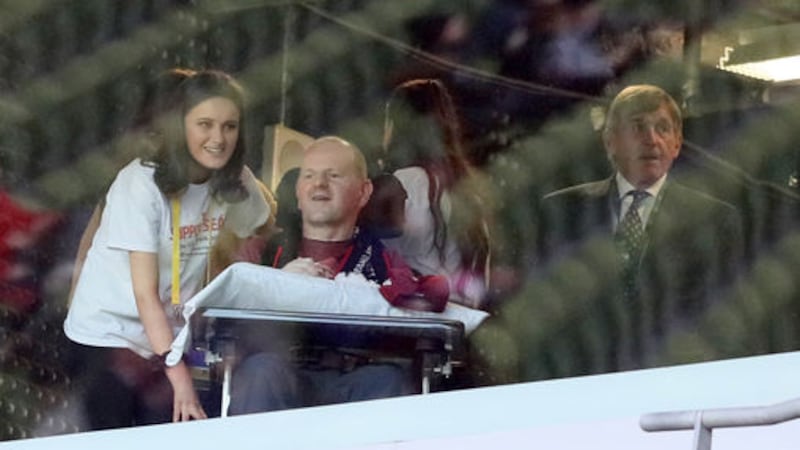Marina Dalglish is one of Liverpool’s foremost civic leaders and was awarded the Freedom of the City in 2016. Marina has raised over £8 million for the breast cancer charity and support centre that she formed after successfully facing the illness in 2003.
Her husband Kenny, also involved in the charity, is well known as an ex-player, ex-manager and director of Liverpool Football Club. He too received the Freedom of Liverpool in 2016.
Two working-class Glaswegians - a former bar-tender and a guy that kicked footballs – stand today as shining exemplars across these islands in charitable and community leadership.
But they didn’t develop leadership by researching business theories on the topic, nor did they graduate through ‘leadership academies’ or ‘gurus’. They did something more fundamental. They lived out their leadership, and continue to do so, based on life values of authentic integrity and self-respect.
As a young couple, late-thirties, four children, and a comfortable professional footballer’s lifestyle, Marina and Kenny Dalglish had plenty of options. But thirty years ago this week, they made the right life choices for the right reasons. In the horrific cauldron of the Hillsborough tragedy, their mettle and dignity assisted in scaffolding the weeping heart of an entire city.
The Hillsborough tragedy is well documented through articles, books, films, proceedings and reports – notably, the Report of the Hillsborough Independent Panel in 2012.
April 15, 1989. Liverpool was playing Nottingham Forest in the FA Cup semi-final. Police made the fatal decision to open a gate and funnel thousands of extra supporters into the Leppings Lane terrace with no escape route. 96 Liverpool fans were crushed to death, over 750 injured. Police called for the dogs before summoning ambulances. The fans were disparaged as thugs.
The Sun newspaper lied viciously that fans had urinated on police officers and robbed the dead of wallets. Police statements were rewritten to expunge criticism of senior officers. Influential levels in government acquiesced in the cover-up. An unresolved legacy was left in Liverpool of city-wide bereavement, huge anger and deep hurt, generational heartbreak and loss, and an unfinished campaign for justice and accountability, with active court proceedings still ongoing 30 years later.
Both the 1990 Taylor report and 2012 Independent Panel report found that there had been poor police leadership in relation to the situation. Lord Justice Taylor’s interim report in August 1989 had concluded that neither the operational facts nor statemented evidence “showed the qualities of leadership to be expected” of senior officers.
Equally, the generational legacy of public blame against the people of Liverpool by London’s most racist media and England’s most populist politicians revealed an appalling lack of moral and public leadership. The signal came from influential voices: ‘Blame the dead.’
In the days after the tragedy, endless tears poured like the Mersey among narrow redbrick terraces around Anfield, and into that tragic river of unimaginable sorrow waded Marina and Kenny Dalglish.
Kenny was Liverpool’s player-manager. He attended many of the funerals, including four in one day. He was central to the club’s open-hearted response to fans. His empathy and quiet understatement struck a chord deep within the city’s psyche. There was nothing political, self-serving or publicity-seeking about his many private actions. That’s why ordinary people regard him as the epitome of leadership. He, together with Marina, did the right things for the right reasons. Bereaved relatives just turned up on their doorstep.
Kenny Dalgish will never go back to Hillsborough. No-one really knows the emotional price he paid. Twenty months later, in February 1991, he’d resigned as Liverpool manager. He knew “something was building” and he’d gone, in his own words, to his “limit”. At home he was using sleeping pills, his body was covered all over in a rash. No-one knew.
Marina says he’d become “horrible” to live with, and she kept the children out of his way. No-one knew. He never talked to his son Paul about the tragedy, even though they’d both been there. Nowadays it’s called post-traumatic stress. It’s inconceivable that Kenny Dalglish could ever have survived without the steel and leadership of Marina. Fifteen years after Hillsborough, she survived cancer.
Leadership is always challenging and always has a price. Sometimes the price is privacy, or isolation, or criticism, or professional. Sometimes it’s even more profound and lasts a lifetime. In Marina and Kenny Dalglish’s case, their price didn’t involve bereavement but it left a truly strong character “falling apart”. The appreciation of those whose lives they touched seems almost unquantifiable - just through the decency of doing the right thing, through authentic leadership. We could all learn from such values in life.
Twitter: jarlathkearney
Facebook: Jarlath Kearney








